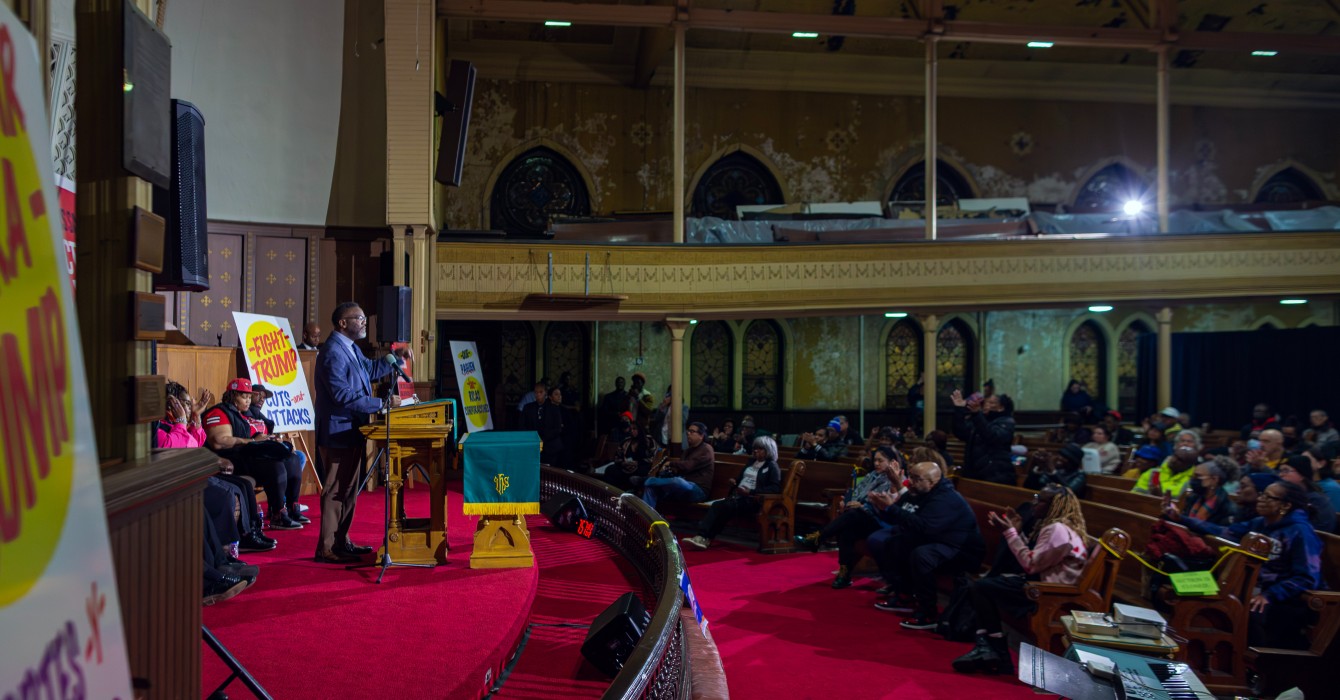Not long ago, a pastor serving a small church in rural Texas described her life to me as one of “public isolation” -- at once prominent and visible, but lonely. At any moment, everyone in her small town knew her whereabouts. They knew what she purchased at local stores. But she felt she could not share her ideas, innermost thoughts and feelings with anyone.
Her predicament is hardly unique to rural ministry. Even in the largest cities, pastors have reported similar feelings of isolation. They also suffer from other physical, emotional or spiritual maladies, as a string of reports in the past decade have noted.
My friend in Texas had asked me about joining a Sustaining Pastoral Excellence peer group at Austin Presbyterian Theological Seminary. Fortunately, she had come to the right place. As thousands of pastors like her across the United States have discovered -- and as I and others have confirmed in a recent study -- SPE peer groups have provided clergy a much-needed place of community.
For pastors who need a break from day-to-day routines, whose creativity and intellect has not been stimulated, whose life is often “other” than those around them, SPE peer groups have provided a place where they can talk freely, not have to attend to the details of leadership, test new thoughts without fear of embarrassment and exchange honest yet supportive critiques.
Indeed, the SPE initiative -- launched in 2003 by Lilly Endowment Inc. -- clearly struck a vital chord with pastors across the nation, helping to improve their lives and ministries, our survey of SPE pastor participants suggests. Overall, the survey results offer powerful testimony for the effectiveness of pastor peer groups, with 94 percent of those surveyed saying their SPE experience made them better pastors.
SPE is a grant program created by the Endowment to help support the country’s pastoral leaders. Over the past six years, the program has awarded funds to various institutions -- seminaries, denominational offices, retreat centers and other educational institutions -- to develop and administer research and other programs to sustain clergy for effective ministry.
Representing nearly every Christian tradition, the SPE projects focused primarily on creating peer support groups -- for biblical study, theological reflection and spiritual renewal and the development of sustained friendships and opportunities for support. In all, the SPE projects created 1,390 pastor groups between 2003 and 2008, making it one of the largest pastoral enrichment experiments in the history of the church in America. Most of the original 63 projects -- and their peer groups -- are still in operation today.
In 2007, I and other researchers -- Penny Marler from the Resource Center for Pastoral Excellence, Samford University; Bob Reber, former dean of Auburn Theological Seminary; and Bruce Roberts, a consultant on clergy peer learning -- received a grant from Lilly to study the SPE peer groups. We sent a 15-page survey to more than 4,500 SPE pastors, receiving completed surveys from 2,101, or 48 percent. Of those, 75 percent were continuing to meet in their peer groups.
The results show that more than 90 percent of the pastors said their peer group provided spiritual refreshment, exposed them to fresh ideas and was a safe place. Overwhelming numbers of pastors -- more than 80 percent -- agreed that their peer groups allowed for frank disagreement, made them better listeners, were fun, gave them new energy for ministry and stretched them.
Almost all said they had originally joined the group as a way to improve in ministry. They also cited intellectual challenge, the importance of the subject matter and the energizing effect of being with other people as reasons for being involved.
As a pastor and director of the College of Pastoral Leaders , the SPE project at Austin seminary, this tells me that what pastors are seeking in peer groups is the joy of community, a community that many had lost. Even if they primarily want to improve their ministries, underneath that motivation is a desire and need for community. If they want to become better pastors then they must enlighten their minds, engage in relevant topics and share all of this with trusted others. That, of course, means they must find community.
Sadly, community is often the very thing many pastors lack. The rural Texas pastor cited previously is not unusual. In a focus group conducted as part of our SPE research, another small town pastor said he had found no one who shared his love of books and described his intellectual life as “withering.” An entire pastor peer group in New Mexico lamented the loss of friends, people with whom they could be “real.” All said they had close friends before they entered ordained ministry, but had become separated from their previous lives by the demands of parish life.
The key practices most frequently cited by the survey respondents add further evidence for the community aspect of peer groups. The most common activity, cited by 83 percent of participants, was “sharing personal concerns or struggles.” Other top activities were enjoying fellowship (eating, drinking, laughing, talking), sharing and getting feedback on ministry problems or challenges, praying for each other and discussing a common reading or topic.
Clearly, if pastors lack others with whom they can read, discuss and learn about topics that are important to them -- in other words, if they lack community -- then they will be numb elsewhere in their lives. For more than 4,000 pastors in the U.S., SPE peer groups helped ease these lives of public isolation.
For information about how to facilitate a peer group, see Facilitation 101.
For more information about SPE, contact Leadership Education at Duke Divinity, which serves as the SPE grant coordination office, 919.613.5323, or leadership@div.duke.edu.












